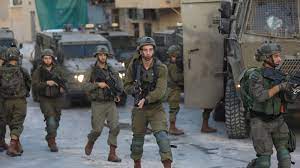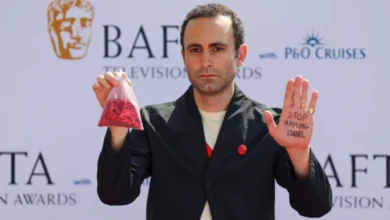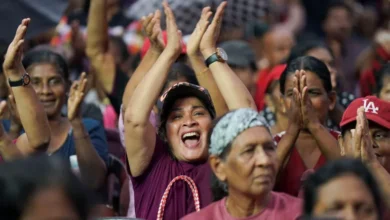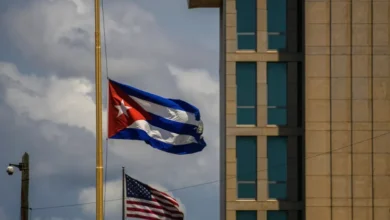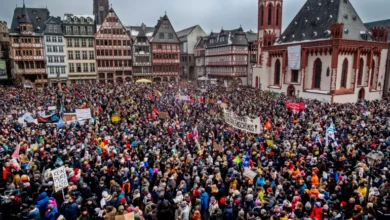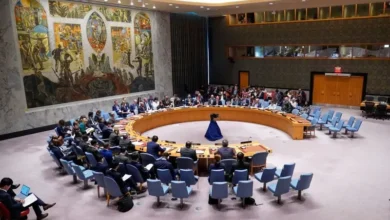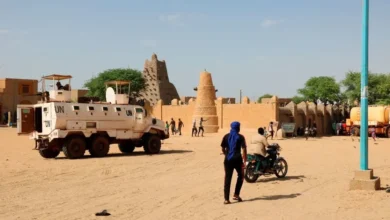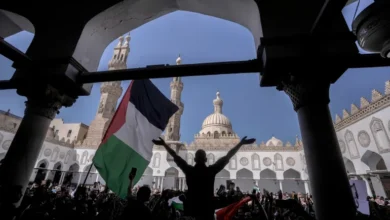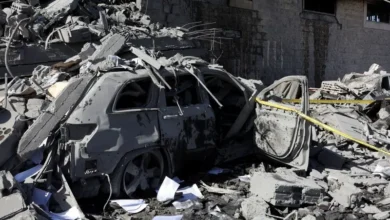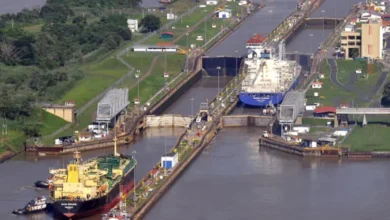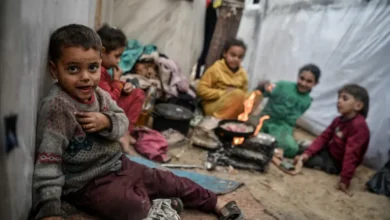Could Puerto Rican voters hurt Trump in US election after jibe at rally?
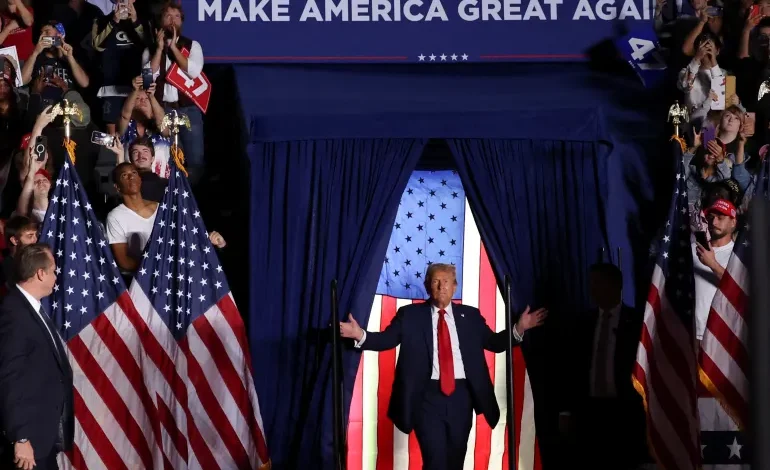
Days before a knife-edge United States presidential vote, the race to the White House has been embroiled in a controversy over remarks at a Donald Trump campaign event in New York City that has sparked accusations of racism.
Stand-up comic Tony Hinchcliffe on Sunday provoked a hail of anger when he referred to Puerto Rico as a “floating island of garbage” in a warm-up set at Madison Square Garden for the Republican presidential candidate as he campaigns against Democratic candidate Kamala Harris.
Hinchcliffe, 40, also quipped that Latinos “love making babies” before likening their presence to an “invasion of the country”.
Enraged voters, politicians and Latino celebrities denounced the Trump campaign for a rally that included racially charged, offensive remarks against Latino communities as well as Jews and Black people.
Residents of Puerto Rico, a US island territory in the Caribbean, cannot vote in the presidential election, but Puerto Ricans living in the 50 US states could shape the race in key battleground states.
“I love Puerto Rico and vacation there. I made fun of everyone. …Watch the whole set.”
Vice President Harris pounced at the remarks, calling them “nonsense”. “I think last night, Donald Trump’s event in Madison Square Garden really highlighted a point that I’ve been making throughout this campaign,” she told a pool of reporters.
“He is focused and actually fixated on his grievances, on himself and on dividing our country.”
Walz, Harris’s running mate, said people in Puerto Rico were US citizens, “pay tax and they serve in the military at almost a higher rate than anybody else”.
President Joe Biden said the rally had been “simply embarrassing”. “It’s beneath any president, but that’s what we’re getting used to. That’s why this election is so important,” the Democrat said.
How big is the Puerto Rican vote?
The Puerto Rican community has a large presence in battleground states that could determine the outcome of the presidential election.
More Puerto Ricans live in the US than on the Caribbean island itself, which has a population of just over 3.2 million. Its residents live a political paradox, enjoying US citizenship but lacking full political representation.
The US took Puerto Rico, Cuba, the Philippines and other colonial possessions from Spain during the brief Spanish-American War in 1898. The first large wave of migration of Puerto Ricans to the US occurred after World War II to ease labour shortages on the mainland.
Today, about 5.9 million people identify as ethnically Puerto Rican, according to 2022 estimates from the US Census Bureau’s American Community Survey, making up the second-largest population of Hispanic origin in the US after Mexicans.
How significant is the Puerto Rican vote in battleground states?
Seven battleground states are expected to determine the outcome of the election, including Pennsylvania, which counts about 486,000 people of Puerto Rican origin – equivalent to about 3.7 percent of the state’s population.
According to an average of nationwide polls compiled by the FiveThirtyEight website, Harris was ahead of Trump by 1.4 percentage points as of Sunday, but the presidential contest is even closer in battleground states. In Pennsylvania – the swing state with the most Electoral College votes, 19 – Trump leads Harris by just 0.2 percentage points.
Steve Herman, chief national correspondent at Voice of America, said the vote in Pennsylvania would be “absolutely critical”.
“Pennsylvania is a bellwether state, and it’s very unlikely that either candidate will win enough electoral votes to become president without [it],” Herman told Al Jazeera.
“It’s possible that a few Puerto Ricans who were planning on voting for Trump would now be so angry that they would vote for Harris or not vote at all.”
He added that a few thousand votes could be sufficient to swing the election result. “That’s just how tight this is,” he said.
